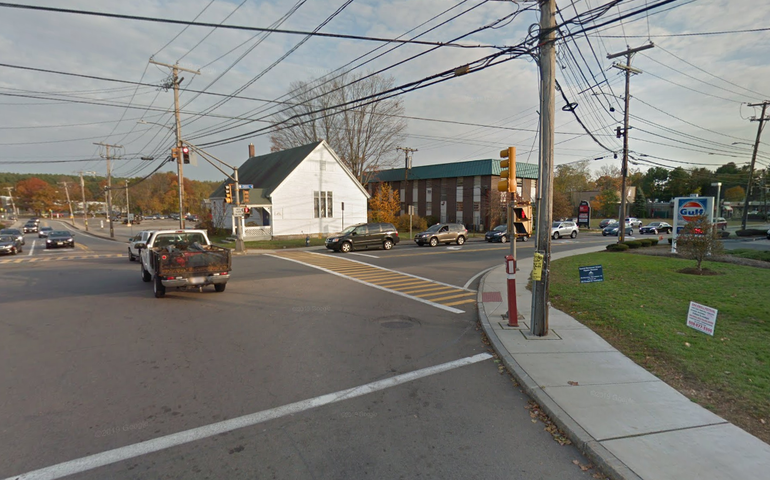The annual Chapter 90 local road and bridge funding bill appears bound for a conference committee after the Senate on Thursday approved a slightly larger appropriation than the House did when it passed its own version of the bill last week.
The Senate bill (S 2486) would direct $200 million to the Chapter 90 program that reimburses cities and towns every year for local road and bridge maintenance and includes another $100 million in grant funding. The bill, which senators repeatedly said needs to be passed urgently to allow municipal roadwork projects to get underway this summer, passed on a 39-0 vote.
The House version of the bill (H 3903) also calls for $200 million in road and bridge funding and would provide $75 million in other grant funding.
Aside from the different totals, the additional grant funding is also not uniform in the two bills.
The Senate included $25 million for the municipal bridge program, $25 million for bus transit infrastructure grants, $25 million for a local bottleneck reduction program, and $25 million for electric vehicle grants to municipalities and regional transit authorities.
The House bill proposed $25 million for the municipal bridge program, $25 million for bus transit, and $25 million for municipal mass transit access. Representatives also approved an amendment that would require the Department of Transportation to maintain two operational commuter rail tracks on the Framingham/Worcester Line during construction of an Allston I-90 megaproject, which does not appear in the Senate bill.
Either branch could decide to go along with the other’s Chapter 90 bill, but it is more likely that a conference committee of three representatives and three senators will be assigned to work up a compromise version. That panel could be appointed when both branches reconvene on Tuesday, after the holiday weekend.
For years, municipal leaders have asked the governor and Legislature to advance multi-year Chapter 90 appropriations so they can plan road projects further in advance. Sen. John Keenan filed an amendment to boost the total Chapter 90 spending in the bill to $400 million for two $200 million annual appropriations.
Keenan said “we are finding municipalities a little bit behind on their infrastructure work on the roads” as they emerge from the pandemic.
“So while in the past a multi-year authorization would have made sense, it makes even more sense this year,” Keenan said.
That amendment, like every other proposal that was not withdrawn by its sponsor, was rejected by the Senate. The Senate also rejected a Sen. Bruce Tarr amendment that would have ordered the Department of Transportation to analyze the availability of electric vehicle charging stations throughout Massachusetts and to develop a plan to maximize the availability of charging stations.
Sen. Jamie Eldridge withdrew an amendment he filed to require that any project funded with Chapter 90 money be studied to determine whether it would exacerbate “heat islands,” where urban development contributes to higher temperatures.
Before diving into the Chapter 90 bill, the Senate on Thursday voted 37-3 to seal the override of Gov. Charlie Baker’s veto of language from the bill financing the construction of the new Holyoke Soldiers’ Home requiring a project labor agreement. Republican Sens. Bruce Tarr and Ryan Fattman voted to uphold the governor’s veto and got Ways and Means Chairman Michael Rodrigues, a Democrat and key member of Senate leadership, to join them. Republican Sen. Patrick O’Connor voted to override his party’s governor.
Baker urged legislators not to require a PLA on the $400 million project, arguing it would drive up the overall project cost and discourage many businesses owned by minorities, women and veterans from bidding on contracts. This week, the administration warned that a PLA could jeopardize as much as $260 million in federal reimbursements for the project.
“There is a successful track record of public projects being built in Massachusetts under project labor agreements. This agreement and other language in this bill will provide good paying careers for a diverse, local workforce creating opportunities for minority, women and veteran-owned contractors,” Massachusetts Building Trades Council President Frank Callahan said.
Jason Kauppi, president of the Merit Construction Alliance, said that by insisting upon the PLA language, the House and Senate “voted to exclude [the] majority of state-certified construction contractors and their employees because they are nonunion, including most of the qualified minority-, women- and veteran-owned construction firms.”
“The legislative majority has cynically wrapped itself in the flag of diversity while making job discrimination the law of the Commonwealth,” he said.
The House had voted 130-30 to override Baker’s veto on Wednesday, with all 30 Republicans siding with the governor.

